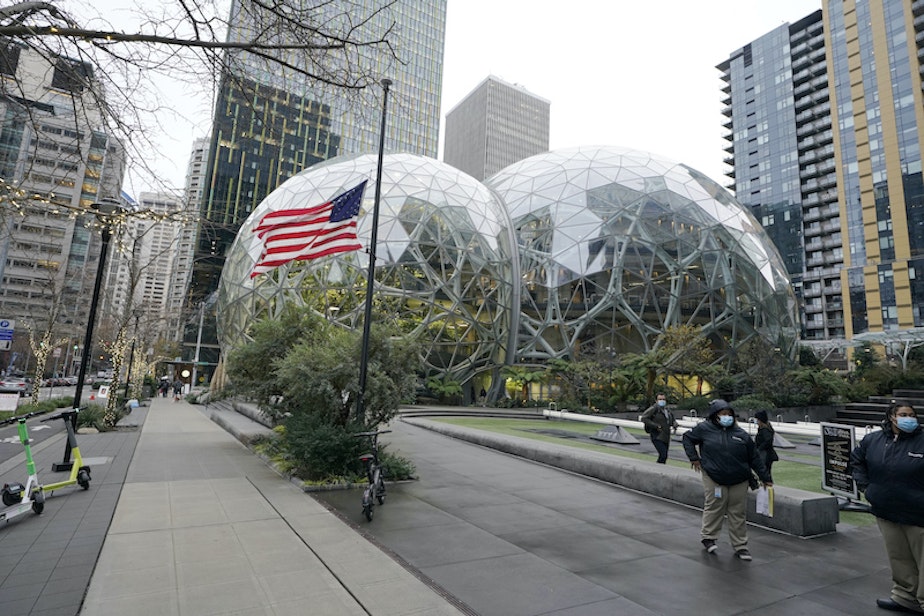As tech companies announce layoffs, the clock is ticking for immigrant workers

As tech companies grew over the last decade, they placed more bets on new and emerging ventures – and hired a lot more people.
As the global economy begins to slow, companies are dialing down the risk factor, which means more layoffs. And many of those workers now without a job are in the U.S. thanks to one document: an H-1B visa.
"There are layoffs happening at Amazon, in the corporate headquarters," said Karen Weise, a Seattle-based technology correspondent for The New York Times. "The exact numbers are not sure or finalized, but we expect it to be somewhere in the neighborhood of about 10,000 employees."
Amazon is the latest tech giant to signal massive layoffs ahead of slowing growth. Meta, Facebook's parent company, announced 11,000 jobs are set to be cut. Twitter, after its acquisition by billionaire Elon Musk, almost immediately fired half its staff.
Weise noted that, given the size of Amazon, the proposed layoffs are "not enormous."
"But it is still a lot of people and their lives and their families," she said.
Tech companies were largely successful in the wake of the pandemic as quarantine fueled online services. As a result, companies went on a bit of a hiring binge, and Weise explained that some companies are hoarding talent.
Sponsored
"There was a huge race for talent," Weise said. "For example, Amazon earlier this year essentially more or less doubled the cap on the cash part of people's compensations, just to try to be more competitive."
For foreign-born workers, who make up a large portion of Seattle's tech industry, layoffs are complicated by the immigration system. The most common visa in the United States is the H-1B, or specialty occupation visa. However, H-1B Visas are tied to an employer, and once someone loses a job with that employer, they have 60 days to find employment or must return to their country of origin.
"There's a lot of fear, anxiety, and uncertainty," said Tahmina Watson from Watson Immigration Law. "With the lay of the land, people don't know if they will get a job."
The 60-day clock begins from the day of an employee's final pay stub. During that span, those on an H-1B cannot take a short-term job elsewhere unless that employer will sponsor an H-1B, or they will lose their status. Another concern is someone's long-term employment status, because, once a worker is assigned an H-1B, they're put into a queue for a green card. A spouse can qualify for a work permit so long as that spot in the green-card queue is continuous, meaning a loss of employment for one family member could impact others as well.
Watson explained there are several backup options, such as a self-employment visa or tourist visa, but recommended people speak with an immigration lawyer before making a decision.
"Plan ahead, see how much time you can get, look at all the visa options," Watson said. "These people are immigrants, people like us, like you and me. They have families, they have children, they have obligations, they have rent to pay car loans to pay. Suddenly, their entire lives are up in the air."
Sponsored
Listen to the full conversation with Karen Weise and Tahmina Watson by clicking the audio above.





